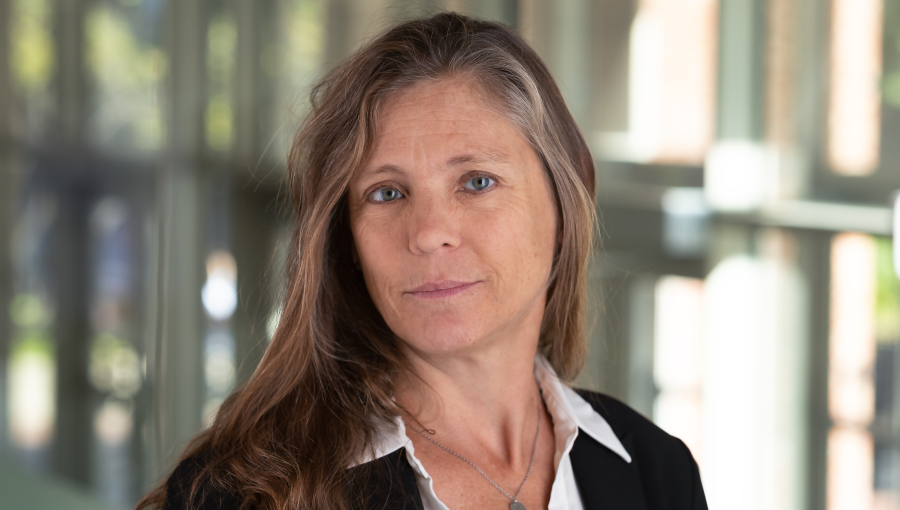Guarini Institute Roundtable: Views on Current Conflicts from Balkans, Baltics, and Budapest
On January 29, the Guarini Institute for Public Affairs held its 2024 inaugural roundtable event titled “Views on Current Conflicts from the Balkans, Baltics, and Budapest.” The event welcomed speakers Zsuzsanna Szelényi, Ognen Vangelov, and Maia Klaassen, and was moderated by Professor Federigo Argentieri, Director of the Guarini Institute.

Zsuzsanna Szelényi
Zsuzsanna Szelényi, founding director of the CEU Democracy Institute Leadership Academy and foreign policy specialist, was not only outspoken about the advancement of Hungary on the international stage but also encouraged more exchange among small states in an effort to become more “central” to the greater global discourse.
As co-founder of the opposition party “Together” and former member of Parliament in Hungary until 2018, her stance on the Russia-Ukraine conflict is reflective of Hungary’s delicate yet integral geographical positioning within Eastern Europe. Furthermore, Szelényi’s recently published book titled Tainted Democracy: Viktor Orbán and the Subversion of Hungary (Hurst, 2022) served as the cornerstone for her analysis of Hungary’s response to the conflict and the nation’s slow deviation from liberalism.
In the wake of the Russian Occupation of Crimea (2014) Szelényi noted the increasingly pragmatic relationship status between Orban’s Hungary and Putin’s Russia, a suspected reason for the recent growing discrepancy between EU and Hungarian politics. While Hungary respects Ukraine’s fight for independence, its support does not extend beyond humanitarian aid due to its inherently peaceful nature and refusal of arms sales to Ukraine.
Ognen Vangelov
Next, Ognen Vangelov took the floor. Vangelov received his Ph.D. in Political Studies from Queen’s University in Canada. His dissertation, Autocratization of Parliamentary Democracies: The Case of Hungary and Macedonia, gained special recognition as the Department of Political Studies’ single nominee for the 2018-2019 Governor General’s Academic Gold Medals competition.
Vangelov spoke on the current condition of the Balkans and its ongoing effort to prevent the threat of political instability and deterioration. Bosnia and Herzegovina, Vangelov mentioned, is one of the more complex examples of ongoing disintegration of the State’s formal structure and presents a potential conflict in addition to the Ukrainian invasion.
The threat of Russian influence over Republika Srpska and its attempt to alter Western focus and destabilize Bosnia only increases the possibility of a growing conflict. This is exacerbated by the several ongoing regional divisions found among the other states of the Balkan peninsula in regard to the legitimacy of newly appointed High-Level Representative, Christian Schmidt.
The question of Bosnia and Herzegovina’s status as a potential EU member state is dependent on its ability to strengthen its internal institutions, Vangelov added. This would, in theory, further open the negotiating table for states like Moldova and Ukraine to achieve candidacy status.
Maia Klaassen
The discussion continued with Maia Klaassen, Estonian director of the Baltic Engagement Center for Combating Information Disorders (BECID). Klaassen works at the University of Tartu’s Institute of Social Sciences in Estonia as a Junior Research Fellow in Media Literacy, and she is also the program manager for the multidisciplinary MA degree in Disinformation and Societal Resilience, as well as the micro degree in Information Resilience.
Offering insight from a Baltic perspective, Klaassen discussed the Russian narrative projected onto smaller states, like Estonia, through the use of online channels and cyberattacks. The frequency of the attacks is not the main issue, but rather, the unwavering confidence carried by Russia, thereby undermining the capabilities of the Baltic actors.
Klaassen, in reference to the Russia-Ukraine conflict, referred to the recent surge of deportees and hate symbols throughout Estonia. These phenomena, when compared to the increasingly vocal “Russian-speaking Estonians” display the emergence of a cultural and ethnic gap among the players of what Klaassen referred to as the “Compatriot Games.”
The three speakers approached the issue of the Hamas-Israel conflict by mentioning the shared lack of coverage within their respective news media outlets. There was a mutual sentiment of concern for the region, however, given their proximity to Russia, the Ukraine Invasion has taken the majority of their diplomatic communications.
(Joan Cottingham)





